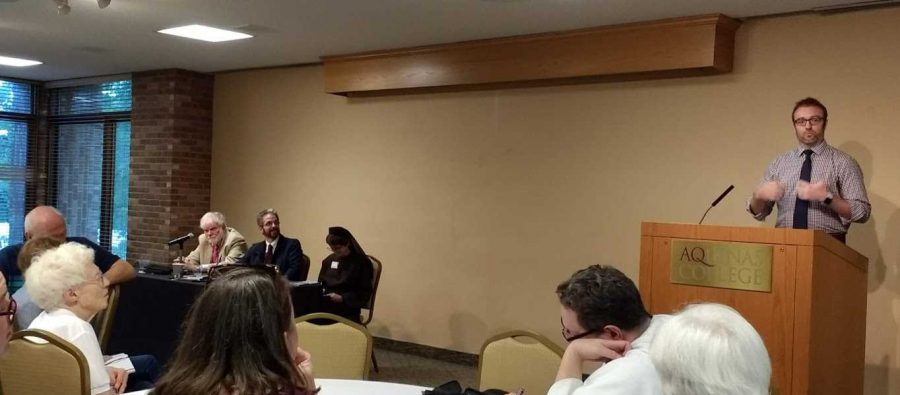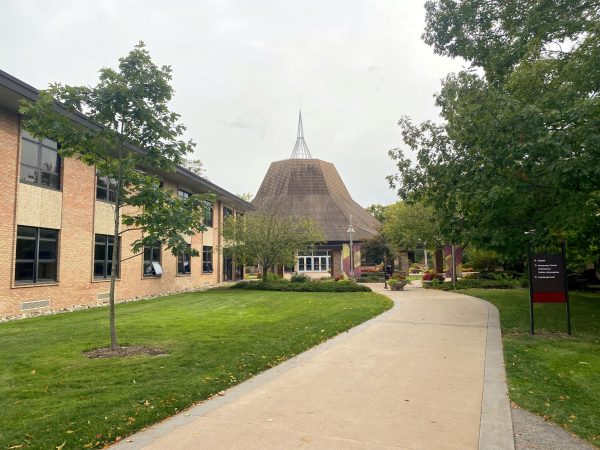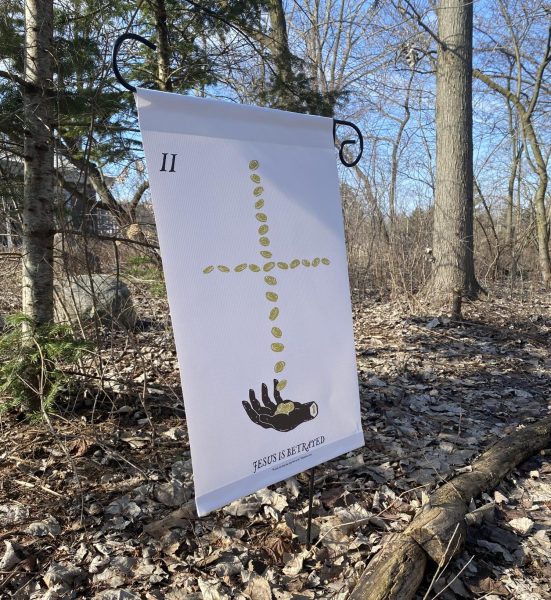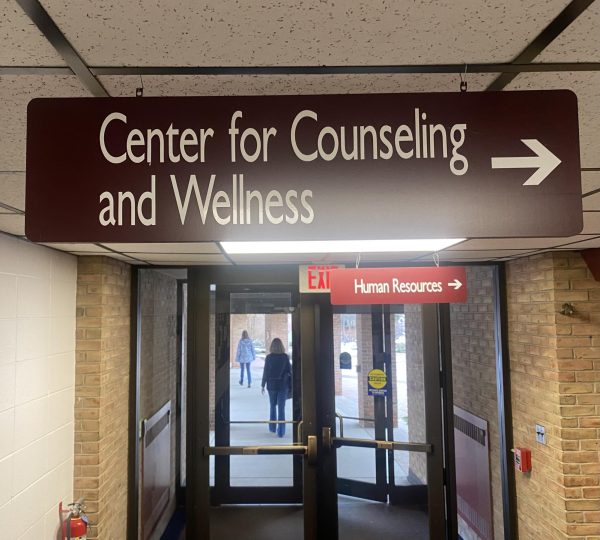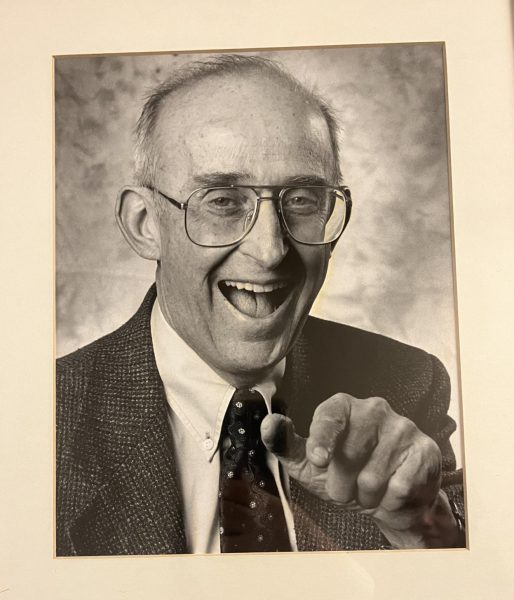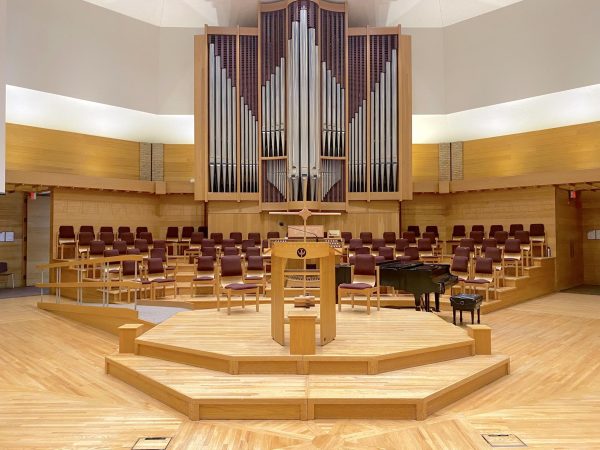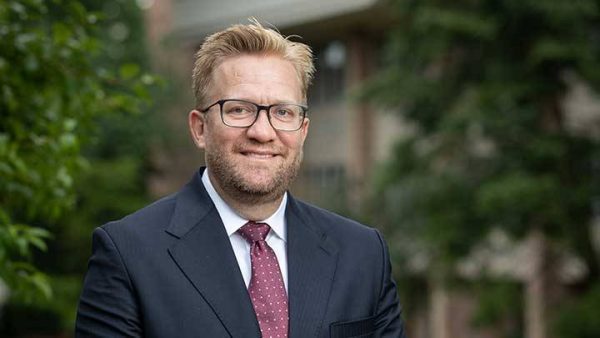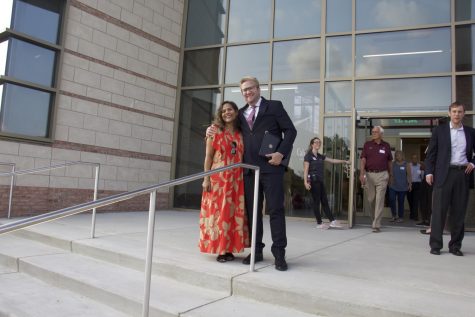Aquinas forum discusses notion of progress in Pope Francis’ encyclical, Laudato si’
Professor David Herbert gives his speech at the forum.
Aquinas College professors, consisting of a theologian, a historian and an economist, examined the implications of Pope Francis’ Laudato si’ in an interactive panel on September 17. Laudato si’, Pope Francis’ second encyclical addressed to the bishops in the Roman Catholic Church, translates to “Praise Be to You” from popular prayer by Saint Francis of Assisi, “Praise be to you, my Lord, through our Sister, Mother Earth, who sustains and governs us.”
In Laudato si’, the pope inspires the global community to appreciate and cultivate creation which upholds humankind. Pope Francis writes, “Change is something desirable, yet it becomes a source of anxiety when it causes harm to the world and to the quality of life for much of humanity.”
The panel began by introducing the three professors: Robert Marko, chair of Aquinas’ theology department; John Pinheiro, history department chair and Director of Catholic Studies; and David Hebert, economics professor and department chair.
Each speaker gave their remarks. They agreed that progress for humanity cannot truly occur unless individual effort is taken to live virtuously and thus sustainably.
Marko presented his theological perspective on the encyclical. The pope first challenges the modern concept of progress which stresses technological advancement. According to Marko, “Progress starts with the believer’s theological vision to promote global solidarity through virtue.”
Next, Pinheiro offered an evaluation of the idea of progress from a historical perspective. Pinheiro summarized writer and lay theologian G.K. Chesterton’s point that progress necessitates direction and continual change rather than a jump to a final state of existence.
According to Pinheiro, people must learn to use technology virtuously before adapting to new technologies which may have unintended consequences. Pinheiro said, “Technological advancement that does not look at consequences is not progress.”
Pope Francis, in the encyclical, claims that a culture which denies solidarity and instead acts selfishly is a “culture of death.” Relatedly, Pinheiro attested, “If people lose the purpose for their actions … to love and serve God virtuously, they will act viciously towards others.”
Hebert, the economist, spoke last. He first challenged the opinion that the pope’s encyclical was an indictment of capitalism. He said, “Progress can still be made by virtuous people in capitalist markets.”
Hebert suggested that capitalism involves allocating resources to their desired sectors in the economy. Using natural resources is not inherently wrong but requires balance and moderation. Hebert suggests, “Innovation and creative entrepreneurship lead to the most effective use of resources.”
Hebert validated American political economist Elinor Ostrom’s belief that local communities should be responsible for fixing ecological problems. Hebert said, “Communities nearest to particular problems have the most interest and ability to solve those problems. People further away from particular issues may hold passionate views about them, but have poorer means to try to solve those issues.”
After the presenters spoke, the room opened up for questions. Most of the questions revolved around who should take responsibility for solving global ecological problems. In general, the forum found that the individual is responsible to work towards solutions by living virtuously.
Although each speaker offered different approaches to solving the problems presented in the pope’s encyclical, they agreed that people must evaluate and change their actions in light of the global ecological crisis.
Pope Francis’ Laudato si’ aims at encouraging people to deeply appreciate the wonders of creation and their fellow human beings, acknowledging how selfish and wasteful behavior can be detrimental to environmental health.
Laduato Si’ may be read on the Holy See website.




